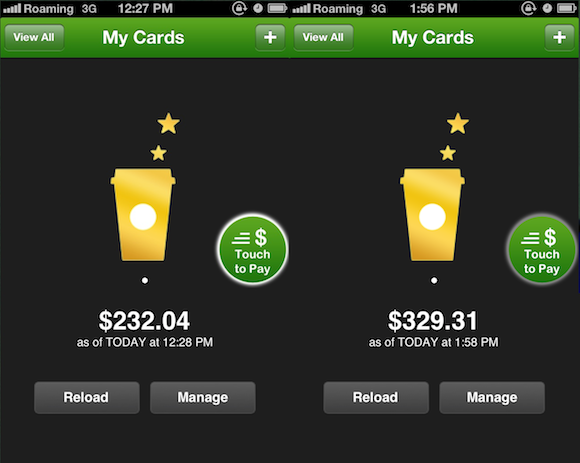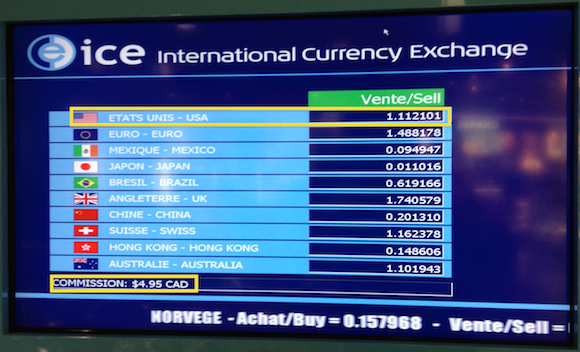Most people are well-aware that airport currency-exchange kiosks offer terrible exchange rates. And while it’s easy to avoid those rates when buying foreign currency — by making a withdrawal from an ATM rather than swapping cash – there’s no great alternative for selling unused currency before returning home. I usually end up stacking my bills and coins in front of a newsstand register and asking the clerk how many bags of M&Ms I can afford.
Of course, I try to avoid this situation by withdrawing money conservatively and charging most expenses to a credit card with no foreign transaction fee. It’s never perfect, but I usually end up with only $10 or $20 of unspent currency, which I can rationalize blowing at the airport.
This weekend, however, I flew to Montreal for a friend’s bachelor party (for just 9,000 miles round-trip!) and the unthinkable happened: I won money at a casino. I woke up with $360 Canadian dollars in my wallet and a flight to catch. And that’s a lot of M&Ms, so I needed to figure out a way to convert my Canadian dollars into U.S. dollars without taking a big loss at the airport kiosks. I suppose I could have just held onto the currency and used it on my next trip to Canada, but history suggests that there was a much higher chance that I would have lost or misplaced it.
So I decided to try a little experiment. I’ve discussed my affinity for Starbucks before, and I wondered whether I could dispose of my Canadian cash at a fair exchange rate by loading it onto my Starbucks card. At the time (according to xe.com), 1 Canadian dollar equaled .9727 American dollars, so I hoped to receive $97.27 for 100 Canadian dollars. I walked into a Starbucks, handed the barista a $100 Canadian bill, and asked her to reload my card. She obliged, albeit with a confused facial expression, and I checked the balance on the card as I exited: my balance had increased by exactly $97.27 – from $232.04 to $329.31.
Before my flight, I put another $100 on my card (I had managed to spend the rest on my share of the hotel room).
If I had exchanged my Canadian currency at an airport kiosk, I would been charged 1.1121 Canadian dollars for every American dollar, which means that $100 Canadian dollars would have yielded just $89.92 American dollars, and that doesn’t even include the $4.95 “commission” on all transactions.
This was obviously an extreme example, and I appreciate the fact that loading hundreds of dollars onto a Starbucks card won’t appeal to everyone. That said, I think it’s a very practical solution for anyone with a modest amount of unspent currency for a few reasons. First, Starbucks are nearly as ubiquitous in major airports as currency-exchange kiosks, so they’re often just as convenient for last-minute currency disposal. Second, you don’t even need to a Starbucks account to take advantage of these fair rates; you can simply purchase a gift card. Third, a Starbucks card can be reloaded (or purchased) for just $5, and even if you only have a few dollars worth of currency left, you can presumably use it towards your reload and then charge the balance to a credit card.
So that’s my new approach to dealing with unused foreign currency. Sorry Mars.

